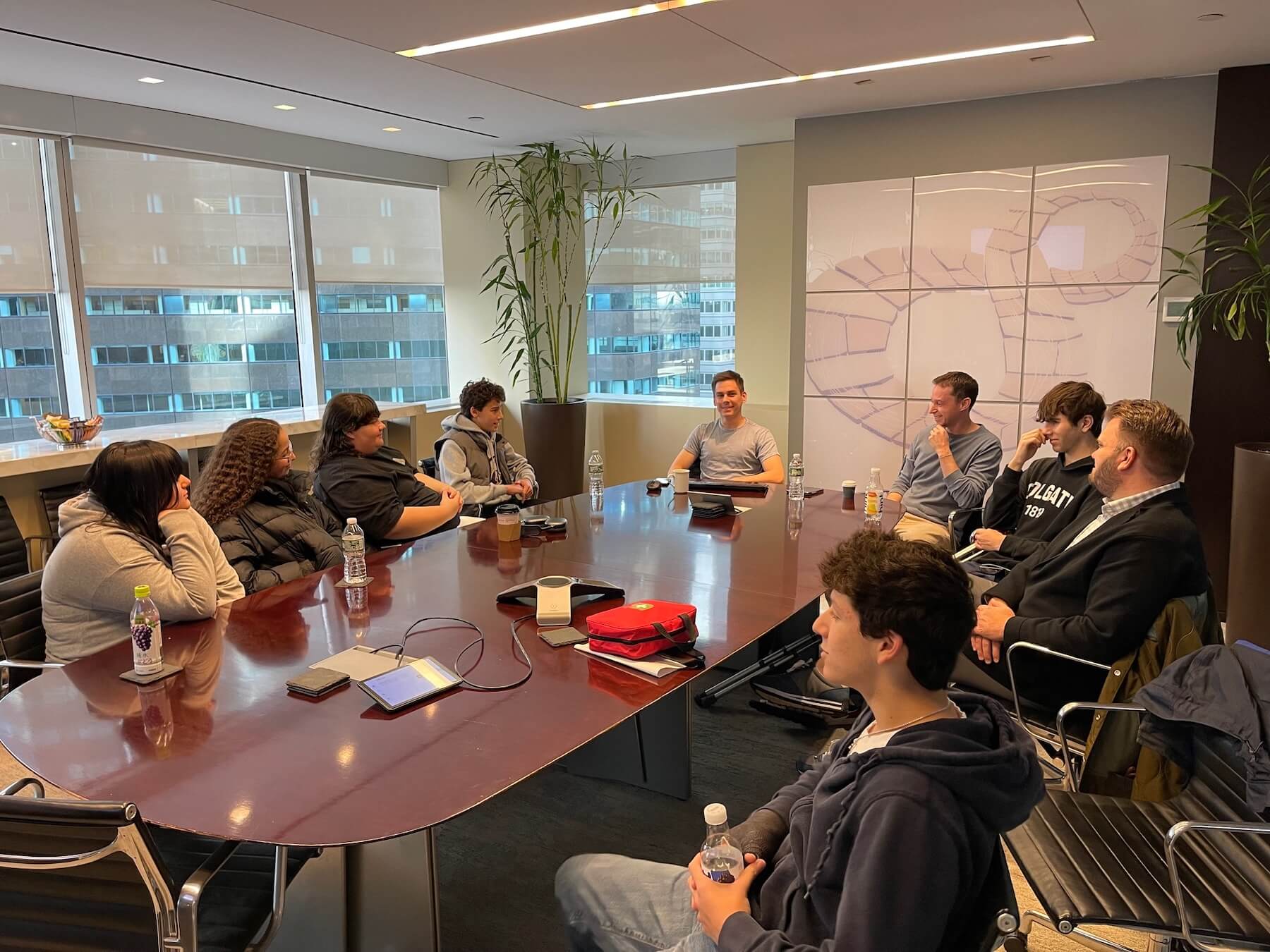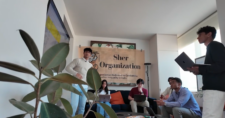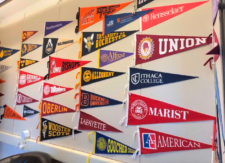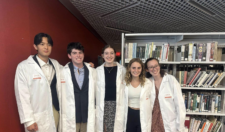At Ethical Culture Fieldston School, lessons emphasize that learning can and does occur beyond the classroom setting. Experiential field trips elevate classroom materials into a real-world experience, showing students that the facts and figures in their textbooks are applicable concepts of their lives.
In Clay Kaufman’s senior Pre-Calculus course, he approaches mathematics through a multisensory lens, introducing visual and even musical concepts to help students access and retain information. The class’s recent field trip to an investment firm and a private equity investment company demonstrated how math, and Pre-Calculus in particular, is an integral part of everyday life.
“We had been studying exponential growth and decay and solving both simple and more complex equations,” Kaufman says. “When studying stocks, we talked about tracking the growth of stocks, what leads to that, what happens when they fall, and the reasons behind that. We then wanted to talk to people who are really doing this work for a living.”
Kaufman collaborated with Trustees Ethan Binder and Jo Natauri, with the assistance of CEO Kyle Wilkie-Glass, to arrange a field trip to their companies, Slate Path Capital and Invidia Capital Management. There, students explored concepts like the long-term realization of profits and investments by connecting with employees doing work that mirrors the equations they had discussed in the classroom.
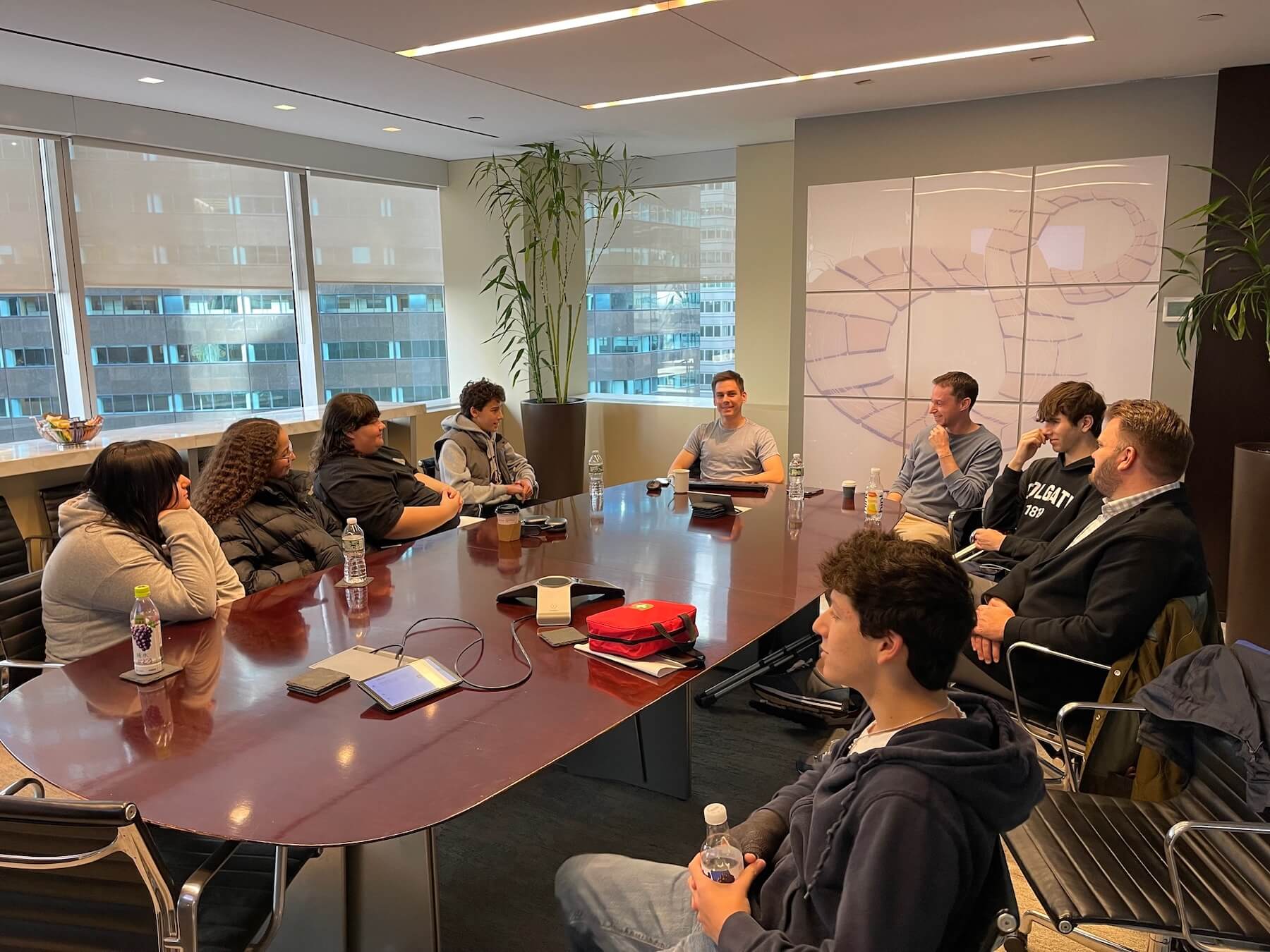
“Seeing the math that we are taught almost every day in Pre-Calculus come to life in the public and private equity firms and on ticker tapes was really interesting,” says Ava C. ’25. “It was enlightening to see how other people use the concepts we are taught in school and what is used most frequently and less often.”
Julie R. ’25 utilized the field trip to explore a potential future. “I was excited to learn about stocks because as important as I knew they were, I didn’t know much about them, and I wanted to see how I could include this into my daily life,” she explains. “It’s an interesting career path and something that I can see myself being interested in in the future.”
Seeing the math that we are taught almost every day in Pre-Calculus come to life in the public and private equity firms and on ticker tapes was really interesting.
Before their trip, Kaufman asked the class to observe the different companies’ work with stocks over the past year. This prompted a study of short-selling stocks (an investment strategy that yields a profit when a stock’s value drops) and bringing examples to discuss with the professionals who practice this.
“These specialists talked with great passion and expertise about the different stocks we’ve studied,” Kaufman says. “I love field trips where the students come in with background knowledge, so they can ask thoughtful questions and understand the nuances.”
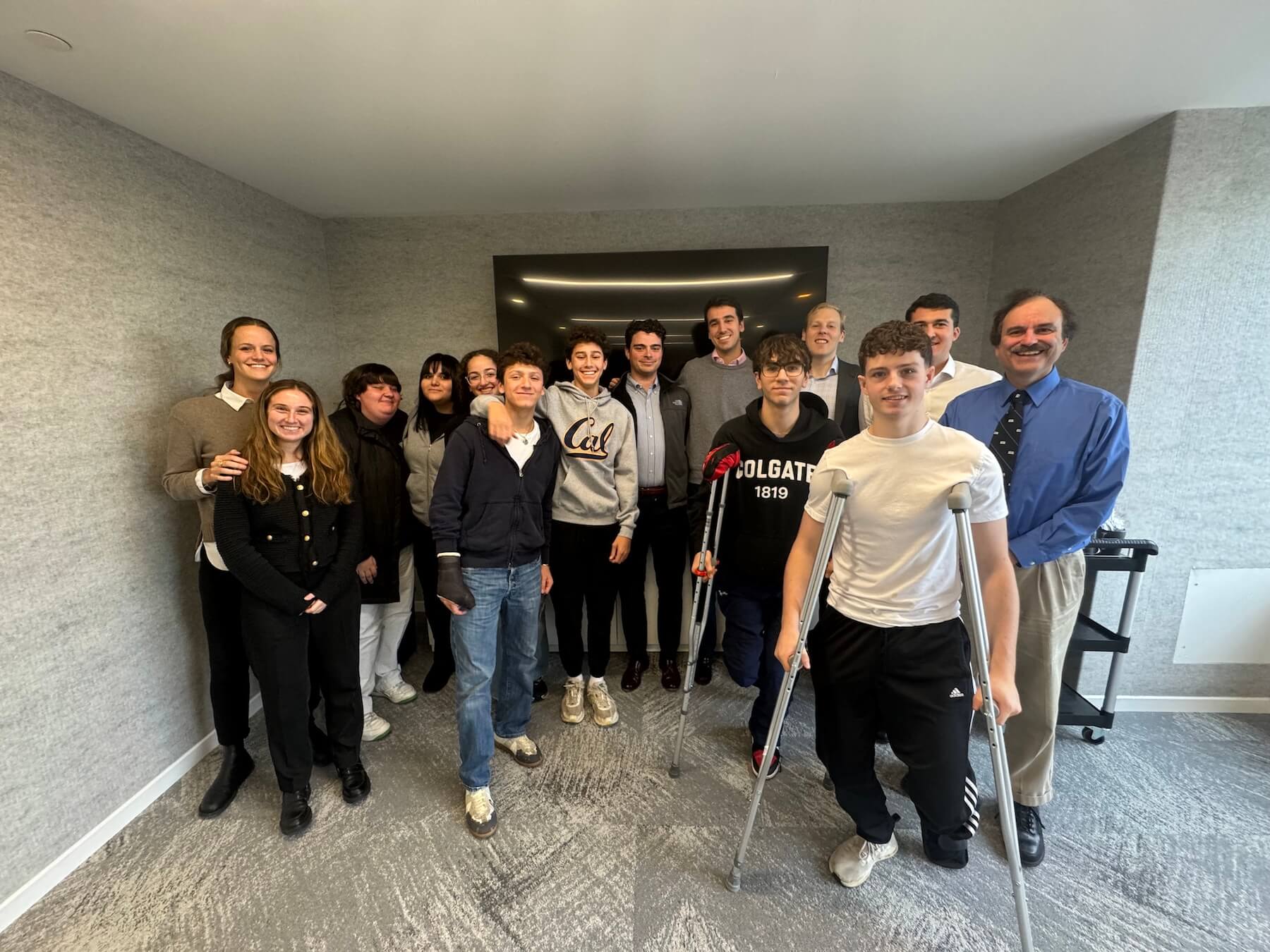
On the trip, students developed new perspectives on math’s role in the stock market and investigated different kinds of financial interest. This type of realistic inquiry learning experience aligns with the course’s approach to teaching math. “There are lots of ways to teach math with a more multisensory approach, and you’re making sure that students have access to the information in a way that will help them remember it,” Kaufman says. “Oftentimes, it’s not the math concepts that are hard for students — it’s the language of math. So how do we introduce color coding, music, and singing the quadratic formula so that you remember it?”
Math is no longer just a problem on a piece of paper or a function written on the board. It’s now a very real part of our world.
“It’s really important to connect it to the real world,” he continues, “and that helps with motivation because if you know why this matters, if it’s connected to something that you might want to do in life or that you’re passionate about, you’re much more likely to want to put the energy into it.”
“All of these concepts, which we’ve explored in great detail, have been so rewarding for my perspective on math,” Ava adds. “Math is no longer just a problem on a piece of paper or a function written on the board. It’s now a very real part of our world.”
As students grow to recognize how Pre-Calculus is a tangible part of their world, Kaufman emphasizes the broader goal of teaching students mathematical concepts in a way that transcends traditional learning.
“This is about teaching students a way of thinking and showing them how that applies to math as well as their other subjects and to the world,” Kaufman says. “Then, when they go off to college and the rest of their lives, they have skills that are applicable in any area of life.”
